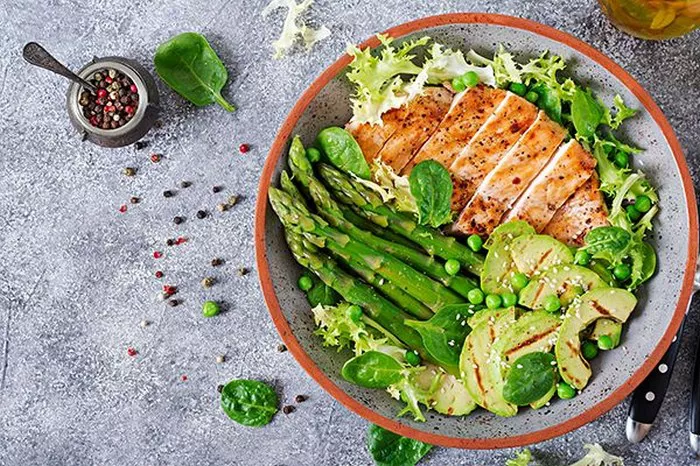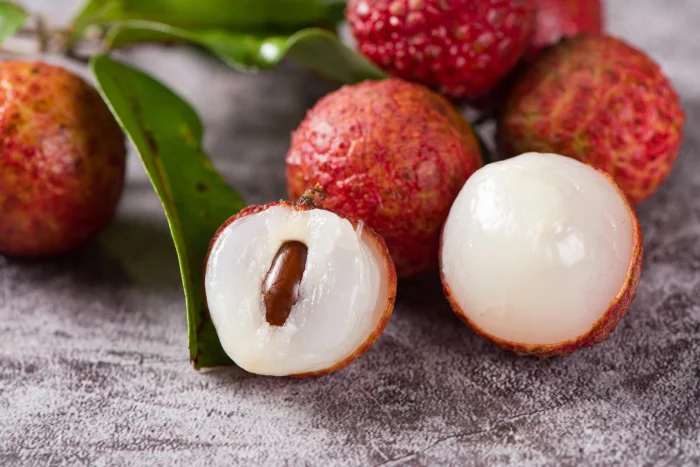Our hair is often considered a crowning glory, and we all desire healthy, lustrous locks. While proper hair care is essential, what we eat also plays a vital role in maintaining the health and appearance of our hair. A balanced diet rich in essential nutrients can promote hair growth, prevent hair loss, and improve overall hair quality. So, if you’re wondering what to eat for better hair, let’s explore some key dietary tips and food choices that can help you achieve those enviable tresses.
1. Protein for Stronger Strands
Protein is the building block of hair, and consuming an adequate amount of it is crucial for maintaining strong and healthy hair. Include protein-rich foods in your diet such as lean meats, fish, eggs, dairy products, legumes, and plant-based sources like tofu or tempeh. These foods provide essential amino acids that promote hair growth and strength. Adding protein to your meals can help prevent hair breakage, brittleness, and thinning.
2. Omega-3 Fatty Acids for Scalp Health
Omega-3 fatty acids are essential fats that our body cannot produce on its own. These healthy fats contribute to scalp health, hydration, and overall hair shine. Include fatty fish like salmon, sardines, or mackerel in your diet, as they are excellent sources of omega-3s. For vegetarian or vegan options, consider incorporating flaxseeds, chia seeds, walnuts, or hemp seeds into your meals. These foods not only benefit your hair but also provide a host of other health benefits.
3. Vitamins A and C for Hair Growth
Vitamins A and C are important for hair growth and overall hair health. Vitamin A promotes the production of sebum, a natural oil that keeps the scalp moisturized. Incorporate foods like sweet potatoes, carrots, spinach, and kale into your diet, as they are rich in vitamin A. Vitamin C, on the other hand, aids in the production of collagen, a protein that strengthens hair strands. Citrus fruits, strawberries, bell peppers, and broccoli are excellent sources of vitamin C that can promote hair growth and prevent hair breakage.
4. Biotin for Stronger Hair
Biotin, also known as vitamin B7, is often associated with healthier hair, skin, and nails. It helps in the production of keratin, a protein that forms the structure of hair strands. Foods like eggs, almonds, walnuts, avocados, and sweet potatoes are rich in biotin. Including these foods in your diet can improve hair strength, prevent hair loss, and enhance overall hair quality. However, it’s important to note that biotin deficiencies are rare, and supplementation should only be considered under the guidance of a healthcare professional.
5. Iron for Hair Growth
Iron deficiency is a common cause of hair loss and thinning. Consuming adequate amounts of iron-rich foods can help prevent these issues and promote healthy hair growth. Include sources of iron such as lean red meat, poultry, fish, spinach, lentils, and tofu in your diet. Pairing these foods with vitamin C-rich foods can enhance iron absorption. Additionally, if you’re following a vegetarian or vegan diet, pay attention to your iron levels and consider incorporating iron supplements if necessary.
6. Zinc for Scalp Health
Zinc is an essential mineral that plays a vital role in maintaining a healthy scalp and promoting hair growth. It helps regulate oil production, prevents dandruff, and supports the health of hair follicles. Seafood, lean meats, pumpkin seeds, chickpeas, and fortified cereals are good sources of zinc. Including these foods in your diet can help ensure a healthy scalp and minimize hair loss.
7. Stay Hydrated for Hair Moisture
Hydration is key for overall hair health and moisture. Drinking an adequate amount of water throughout the day keeps your hair hydrated and prevents dryness, which can lead to brittle and damaged hair. Aim to drink at least 8 glasses of water daily and increase your intake if you live in a dry climate or engage in intense physical activity. Herbal teas, coconut water, and fresh fruit juices can also contribute to your overall hydration.
8. Avoid Crash Diets and Nutritional Deficiencies
Extreme diets or crash diets that severely restrict calories or eliminate entire food groups can lead to nutritional deficiencies, which can negatively impact hair health. It’s important to maintain a balanced diet that includes a variety of nutrient-dense foods to ensure you’re getting all the essential vitamins, minerals, and macronutrients your hair needs to thrive. If you have concerns about your diet or suspect a nutritional deficiency, consult with a healthcare professional or a registered dietitian.
9. Practice Good Eating Habits
In addition to incorporating hair-healthy foods into your diet, practicing good eating habits can also contribute to better hair. Avoid excessive intake of sugary, processed foods, and focus on whole, unprocessed foods. Include a variety of fruits, vegetables, whole grains, and lean proteins in your meals. Practice portion control, as excess calorie intake can lead to weight gain and potentially impact hair health. Eating a well-balanced diet overall will support your hair health along with your overall well-being.
10. Be Patient and Consistent
Lastly, it’s important to note that changes in hair health take time. Nourishing your hair from within requires consistency and patience. While a healthy diet is essential, it may take several weeks or months to see noticeable improvements in your hair. In the meantime, continue practicing good hair care habits, such as regular washing, conditioning, and minimizing heat and chemical treatments.
In conclusion, what you eat can have a significant impact on the health and appearance of your hair. By incorporating protein, omega-3 fatty acids, vitamins A and C, biotin, iron, zinc, and staying hydrated, you can promote hair growth, prevent hair loss, and improve overall hair quality. Remember to maintain a balanced diet, avoid crash diets, and practice good eating habits. With time, consistency, and a nourishing diet, you can achieve the healthy, beautiful hair you desire.




















